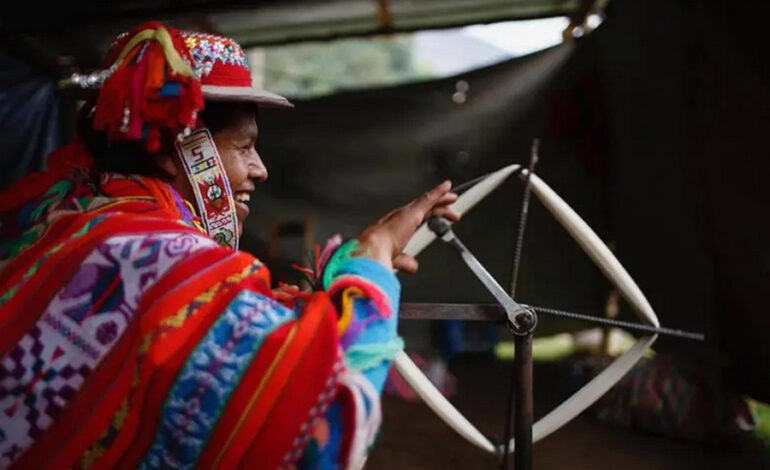Exploring Ethical and Artisan Holiday Gifts: Insights from Nest Founder Rebecca van Bergen

Introduction
Rebecca van Bergen, the visionary Founder and Executive Director of Nest, a nonprofit dedicated to fostering a handworker economy, is reshaping how we approach holiday gift-giving. Nest’s mission extends beyond commerce, aiming to propel global workforce inclusivity, enhance women’s wellbeing beyond factories, and preserve diverse cultures.
In a year marked by challenges, the importance of human connection and intentional choices has become evident. The closure of over two million small businesses has underscored the impact of our purchasing decisions. However, a silver lining emerges as we witness the transformative influence of supporting community-oriented small businesses and ethical brands. The surge in sustainability-related searches, as reported by Lyst & Good On You in 2020, highlights a growing awareness of the need for intentional and ethical consumer choices.
A Handmade Holiday: Empowering Artisans
Crafting a Meaningful and Feminist Gift-Giving Experience
Opt for gifts crafted entirely by hand, such as chunky hand-knit sweaters, bohemian crochet wall hangings, or hand-molded ceramics available on platforms like Etsy. Engaging in the act of crafting, whether as a maker or a supporter, serves as a powerful stress-relief mechanism in our digital age. Handmade gifts hold the added value of fostering tactile connections in a world often dominated by virtual experiences. Crucially, supporting handmade items provides a lifeline to struggling independent artisans, a significant portion of whom are women juggling the dual responsibilities of work and parenting.
Local Treasures: Supporting Small Businesses
Navigating Economic Challenges with Local Purchases
Amidst the economic repercussions faced by small and local businesses, especially those with physical storefronts due to the Covid pandemic, the importance of supporting them cannot be overstated. Online platforms like Etsy and Live Buy Local offer dedicated sections for locally made products. Alternatively, venture out to your local main street, masked up for safety, and directly support artisans in your community. Establishing a connection with local shopkeepers ensures transparency about product origins, facilitating an ethical purchase.
Empowering BIPOC Businesses
Fostering Equity in Business
Businesses led by Black, Indigenous, and People of Color (BIPOC) have historically faced underpromotion and higher barriers to market entry. Initiatives like the 15 Percent Pledge, spearheaded by Aurora James of Brother Vellies, advocate for retailers to allocate 15% of their shelf space to Black-owned businesses. Designers like Tracy Reese, with her sustainable clothing brand Hope for Flowers, contribute to a more equitable future by employing women reentering the workforce and promoting skill development.
Explore Nest’s BIPOC makers guide for a curated selection of US-based artisans, supporting businesses like Social Justice Jewelry and Ember & Onyx.
Seals of Ethical Approval: Informed Purchases
Committing to Informed and Ethical Consumer Choices
Prioritize brands committed to ethical practices by looking for certifications that validate their dedication to people and the planet. Explore a range of seals, each signifying different aspects:
- Fair Trade: Ensures adherence to Fair Trade USA’s standards in the production and trade of ingredients.
- Rainforest Alliance Certified: Represents a commitment to ecosystem protection, wildlife preservation, and fair treatment of employees.
- Equal Exchange: Empowers farmers and their families while educating consumers on trade issues affecting farmers.
- Made Safe: Certifies non-toxic products for body, family, and home use, ensuring safety.
- Cradle to Cradle: Globally recognized for creating safer, sustainable products and ensuring product transparency.
- Global Organic Textile Standard (GOTS): A leading standard for organic fibers in textiles.
- STANDARD 100 by OEKO-TEX: A well-known label indicating textiles tested for harmful substances, signifying product safety.
- Nest’s Seal of Ethical Handcraft: A personal favorite, assuring consumers of ethically handcrafted items, from fashion to furniture, contributing to the upliftment of the global handworker economy.
Conclusion
As the holiday season approaches, let’s usher in a meaningful change in our approach to gift shopping. With fewer holiday gatherings, it presents an opportune moment to reflect on our values. The ripple effect of ethical shopping can create a positive impact. By choosing gifts aligned with our values, we contribute to a connected and sustainable world, fostering joy not just for the recipients but for the artisans and communities behind each thoughtful creation.









